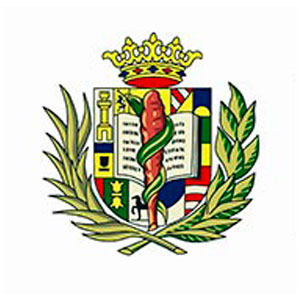Master's Degree in Human Microbiota Continuing education

Delve into the study of the human microbiota and its impact on health
Recent strides in the exploration of human and animal microbiota are reshaping the paradigm of healthcare. This evolution transcends the predictive, reactive model that was predominantly rooted in genetics, pivoting towards a holistic, forward-thinking, and precision-based approach. In this new perspective, the central role of epigenetics in health is acknowledged.
The prolonged life expectancy of our citizens has heightened concerns about age-related illnesses (as per WHO, 2021). Many chronic non-communicable diseases prevalent in today's developed societies, including metabolic syndrome, inflammatory conditions, cancer, allergies, intolerances, and atopies, are closely linked to dysbiosis within the intestinal microbiota.
In light of this, the curriculum dedicates approximately 40% of credits to applied knowledge essential for clinical intervention. This includes comprehensive training on the concepts of eubiosis and dysbiosis and their profound influence on health and disease. Moreover, it encompasses the most rigorously substantiated techniques for assessing and modulating microbiota.
Read +The wealth of available evidence underscores the critical role of a health professional with expertise in microbiota, positioning them as strategic responders to current and future socio-health demands.
In this context, our innovative program offers a tailored curriculum that addresses contemporary requirements. It integrates the latest advancements and ongoing research, enhancing daily practices and benefiting from the knowledge of a dedicated faculty and actively engaged professionals.
Read LessProgram with the scientific endorsement of the Illustrious Official College of Physicians of Madrid
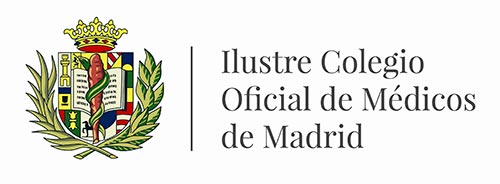
The Master's in Human Microbiota at Nebrija University proudly bears the scientific endorsement of ICOMEM. The prestigious recognition from the Illustrious Official College of Physicians of Madrid signifies a commitment to upholding the highest standards of quality and excellence in scientific endeavors, particularly those related to medical practices and health promotion.
Student profile: The preferred entry profiles for the Master's Degree should exhibit a distinctly interprofessional nature, catering to clinical practitioners across various specialties (including doctors, nurses, nutritionists, psychologists, pharmacists, dentists, graduates in physical activity and sports, physiotherapists, etc.), as well as researchers in the basic sciences and professionals and researchers engaged in research and development within the food and pharmaceutical industries.
Degree:Master’s in Continuing Education in Human Microbiota
Learning center:School of Life and Nature Sciences
Branch of knowledge: Sanitary - Health
Total credits 60 credits.
Minimum 12 ECTS credits and maximum 60 ECTS credits per enrollment and academic year
Academic year it was introduced: 2023 - 2024
Duration: 1 year
Teaching type: Hybrid
Academic Regulations: General student’s regulations. Credit transfer and recognition. Regulation of student participation. Common procedures for carrying out the Final Research Project
University Services: [+info]
Internal Quality Assurance System System managers Incidents, Suggestions and Complaints Job placement report and assessment of training received
Education based on the development of clinical cases
Curriculum
All our degrees and curricula have been developed in accordance with the new guidelines set by current legislation, having already been verified by the National Quality Assessment Agency.
The student must take 60 credits
First Semester 30 ECTS
From October to January, both included- 4 ECTS | Fundamentals of human microbiota
- 4 ECTS | Evolutionary context, homeostasis and microbiota
- 4 ECTS | Factors that interact with the microbiota
- 4 ECTS | Microbiota and immune system
- 4 ECTS | Microbiota and neuro-endocrine system
- 4 ECTS | Diagnostic techniques in human microbiome: omics sciences
- 6 ECTS | Digestive microbiota
Second Semester 30 ECTS
From January to June, both included- 4 ECTS | Other human microbiotas
- 4 ECTS | Clinical applications I: Microbiota and pathology
- 4 ECTS | Clinical applications II: Modulation of the microbiota
- 4 ECTS | Clinical applications III: Personalized Medicine and microbiota
- 4 ECTS | Clinical applications IV: Microbiome and life cycle
- 4 ECTS | Clinical practices
- 4 ECTS | Research Methodology: Omic Sciences
- 6 ECTS | Master's Final Research Project
Professors
 Silvia Gómez Senent
Médico de Aparato Digestivo
Silvia Gómez Senent
Médico de Aparato DigestivoDirectora del Máster en Microbiota Humana
Profesora de:
• Fundamentos de microbiota
• Factores que interaccionan con la microbiota
• Microbiota digestiva
• Aplicación clínica I: microbiota y patología
• Aplicación clínica III: medicina personalizada y microbiota
• Aplicación clínica IV: microbioma y ciclo vital Digestive System Doctor
Director of the Master in Human Microbiota
Professor of:
• Fundamentals of microbiota
• Factors that interact with the microbiota
• Digestive microbiota
• Clinical application I: microbiota and pathology
• Clinical application III: personalized medicine and microbiota
• Clinical application IV: microbiome and life cycle
 Jorge Álvarez Troncoso
Médico internista
Jorge Álvarez Troncoso
Médico internistaProfesor de:
• Microbiota y sistema neuroendocrino
• Aplicación clínica I: microbiota y patología
• Aplicación clínica III: medicina personalizada y microbiota Internist
Professor of:
• Microbiota and neuroendocrine system
• Clinical application I: microbiota and pathology
• Clinical application III: personalized medicine and microbiota
 Garazi Azaldegui Olaizola
Médico especialista en Pediatría
Garazi Azaldegui Olaizola
Médico especialista en PediatríaProfesora de:
• Aplicación clínica IV: microbiota y ciclo vital Medical specialist in Pediatrics
Professor of:
• Clinical application IV: microbiota and life cycle
 Jose Campos
Médico Reumatólogo. Inmunólogo.
Jose Campos
Médico Reumatólogo. Inmunólogo. Profesor de:
• Microbiota y sistema inmune. Rheumatologist. Immunologist.
Professor of:
• Microbiota and immune system.
 Dido Carrero Muñiz
Profesora de:
Dido Carrero Muñiz
Profesora de:• Técnicas diagnósticas del microbioma Professor of:
• Microbiome Diagnostic Techniques
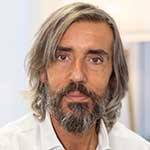 Raúl de Lucas
Médico dermatólogo.
Raúl de Lucas
Médico dermatólogo.Profesor de:
• Otras microbiotas humanas
• Aplicación clínica I: microbiota y patologías
• Aplicación clínica III: medicina personalizada y microbiota Dermatologist.
Professor of:
• Other human microbiotas
• Clinical application I: microbiota and pathologies
• Clinical application III: personalized medicine and microbiota
 Mª Carmen Diaz Martínez
Bióloga. Embrióloga senior
Mª Carmen Diaz Martínez
Bióloga. Embrióloga seniorProfesora de:
• Contexto evolutivo, homeostasis y microbiota
• Otras microbiotas humanas
• Aplicación clínica I: microbiota y patología
• Aplicación clínica IV: microbioma y ciclo vital Biologist. Senior embryologist
Professor of:
• Evolutionary context, homeostasis and microbiota
• Other human microbiotas
• Clinical application I: microbiota and pathology
• Clinical application IV: microbiome and life cycle
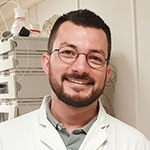 Víctor Echeverry Alzate
Psicólogo
Víctor Echeverry Alzate
PsicólogoProfesor de:
• Factores que interaccionan con la microbiota Psychologist
Professor of:
• Factors that interact with the microbiota
 Irene Escudero Martínez
Médico especialista en Neurología
Irene Escudero Martínez
Médico especialista en NeurologíaProfesora de:
• Aplicación clínica I: microbiota y patología
• Aplicación clínica III: medicina personalizada y microbiota Doctor specializing in Neurology
Professor of:
• Clinical application I: microbiota and pathology
• Clinical application III: personalized medicine and microbiota
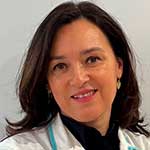 Cristina Fente Sampayo
Farmacéutica
Cristina Fente Sampayo
FarmacéuticaProfesora de:
• Fundamentos de microbiota humana
• Aplicación clínica II: modulación de la microbiota Pharmacist
Professor of:
• Fundamentals of human microbiota
• Clinical application II: modulation of the microbiota
 Sheila López Góngora
Médico especialista en Medicina Interna
Sheila López Góngora
Médico especialista en Medicina InternaProfesora de:
• Microbiota y sistema neuroendocrino Doctor specializing in Internal Medicine
Professor of:
• Microbiota and neuroendocrine system
 Esther Martínez Miguel
Enfermera
Esther Martínez Miguel
Enfermera Profesora de:
• Microbiota y Sistema neuroendocrino Nurse
Professor
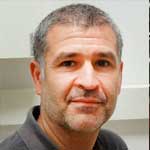 Vicente Martinez Perea
Veterinario
Vicente Martinez Perea
VeterinarioProfesor de:
• Microbiota y sistema inmune Veterinarian
Professor of:
• Microbiota and immune system
 Guillermo Myro
Psicólogo
Guillermo Myro
PsicólogoProfesor de:
• Aplicaciones clínica I: microbiota y salud mental.
• Aplicaciones clínicas II: modulación de la microbiota.
• Aplicaciones clínicas III: Medicina personalizada y microbiota Psychologist
Professor of:
• Clinical applications I: microbiota and mental health.
• Clinical applications II: modulation of the microbiota.
• Clinical applications III: Personalized medicine and microbiota
 Alicia Padilla Galo
Médico especialista en Neumología
Alicia Padilla Galo
Médico especialista en NeumologíaProfesora de:
• Otras microbiotas
• Aplicaciones clínicas III: medicina personalizada y microbiota Physician specialized in Pulmonology
Professor of:
• Other microbiota
• Clinical applications III: personalized medicine and microbiota
 Maria Real Capell
Farmaceútica. Nutricionista
Maria Real Capell
Farmaceútica. NutricionistaProfesora de:
• Seminario Neuroinflamación Pharmacist. Nutritionist
Professor of:
• Neuroinflammation Seminar
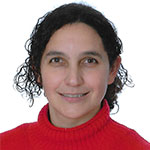 Cristina Rodríguez
Nutricionista
Cristina Rodríguez
NutricionistaProfesora de:
• Factores que interaccionan con la microbiota
• Aplicación clínica II: modulación de la microbiota Nutritionist
Professor of:
• Factors that interact with the microbiota
• Clinical application II: modulation of the microbiota
More Academic Information
Hybrid Learning
Admission
To enroll in the Master's Degree in Human Microbiota, please follow these steps:
- • Possession of an official university degree is a prerequisite, such as Associate's or Bachelor's Degree, or University Graduate. Graduates from foreign educational systems can also apply, provided they demonstrate a level of education equivalent to the corresponding Spanish university degrees and obtain the necessary authorization from their country of education. Students should submit a certified copy of their university degree. Relevant degrees for this master's program typically fall within the field of Health sciences and related basic sciences.
Employability
Career Opportunities
Upon program completion, graduates of the Master's Degree in Human Microbiota can pursue careers in various contexts, including:
More information on Internships in CompaniesUniversity life in Human Microbiota
Visit all the Activities of the School of School of Life and Nature Sciences
Opening Ceremony of the academic year
Opening Ceremony of the academic year at Nebrija University's Madrid-Princesa Campus







